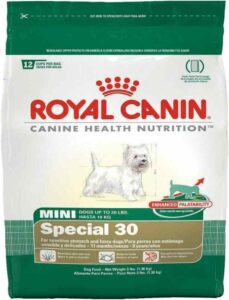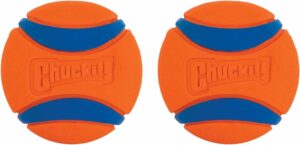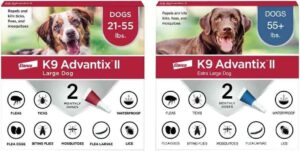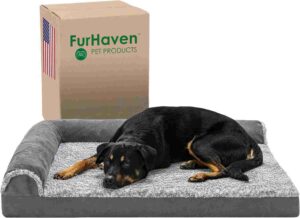These little furballs make wonderful companions, adding warmth and affection to our lives. However, as a dog lover, I’ve often wondered about the lifespan of these delightful creatures and what it takes to ensure they live a long and healthy life.
On average, Havanese dogs have a relatively long lifespan, typically ranging from 14 to 16 years. This remarkable longevity sets them apart from many other dog breeds. However, reaching this age isn’t automatic; it requires responsible care and attention.
A Havanese’s lifespan can be influenced by various factors. Genetics play a role, as some bloodlines may be more prone to certain health issues. That’s why choosing a reputable breeder or considering adoption from a rescue can be essential. In my experience, investing in good genetics is a proactive step toward ensuring a longer life.
Diet and nutrition also play a critical part in a Havanese’s well-being. Providing them with high-quality dog food, ensuring they stay well-hydrated, and avoiding toxic foods like chocolate or grapes is vital. A balanced diet supports their health and, in turn, their longevity.
Factors Influencing the Lifespan of Havanese
1. Genetics
Genetics are a fundamental factor in determining a Havanese’s lifespan. Some health conditions may be hereditary, and a dog’s overall genetic makeup can impact its longevity.
Responsible breeding practices can help reduce the risk of certain genetic health issues, so it’s essential to choose a reputable breeder when getting a Havanese.
2. Diet and Nutrition
A well-balanced diet is crucial for a Havanese’s overall health and longevity. The type and quality of food you provide significantly impact their lifespan.
Ensure your Havanese receives high-quality dog food with the right balance of nutrients. Consult your veterinarian to create a nutrition plan tailored to your dog’s specific needs.
3. Exercise and Activity
Regular exercise is essential for maintaining a healthy weight and preventing obesity, which can lead to various health problems in Havanese dogs.
Engaging in physical activities also keeps them mentally stimulated and happy. Daily walks, playtime, and interactive toys can help ensure a longer, healthier life for your Havanese.
4. Grooming and Care
Proper grooming and care play a pivotal role in a Havanese’s well-being. These dogs have a long, silky coat that requires regular grooming to prevent matting and tangling.
Neglecting grooming can lead to skin issues and discomfort for your dog. By maintaining their coat and overall hygiene, you’ll contribute to their longevity.
5. Veterinary Care
Regular vet visits are a must for any dog, including Havanese. Routine check-ups and vaccinations help identify and prevent potential health issues.
Heartworm prevention, flea and tick control, and dental care are crucial aspects of veterinary care that can significantly impact your Havanese’s lifespan.
6. Mental and Emotional Well-being
Havanese dogs are known for their affectionate and sociable nature. Neglecting their mental and emotional needs can lead to stress and behavioural issues, ultimately affecting their health and longevity.
Spend quality time with your Havanese, engage in play, and provide them with love and attention to keep their mental and emotional well-being in check.
7. Lifestyle and Environment
The environment in which your Havanese lives can also affect their lifespan. A safe and clean living space, free from hazards, contributes to their well-being. Protection from extreme weather conditions is essential.
Additionally, Havanese dogs thrive in a loving and positive atmosphere, so a happy home can help extend their life.
What To Do to Help My Havanese Live a Longer and Healthier Life
As a Havanese owner, you naturally want to ensure your furry friend enjoys the longest and healthiest life possible.
1. Quality Nutrition for a Strong Foundation

Proper nutrition is the cornerstone of a healthy life for your Havanese. Investing in high-quality dog food that meets their nutritional needs is crucial. Look for brands that use premium ingredients, and consider options tailored to the specific needs of small or toy breeds like the Havanese.
Some recommended brands include Royal Canin Havanese Formula, Wellness CORE Small Breed, and Blue Buffalo Life Protection Formula Small Breed.
2. Regular Exercise to Keep Your Havanese Fit

Regular exercise is essential for maintaining your Havanese’s health. Aim for daily walks, playtime, and interactive toys. Products like the Chuckit! Ultra Ball and Kong Classic Dog Toy can help keep your pup active and engaged.
Regular exercise can help control their weight, reduce stress, and keep their joints and muscles in top condition.
3. Grooming for a Silky Coat and Overall Health
Havanese dogs are known for their luxurious, silky coats. Proper grooming is not only for aesthetics but also for their well-being.
Regular brushing with a quality slicker brush like the Hertzko Self-Cleaning Slicker Brush can prevent matting and tangles. For baths, consider using gentle, hypoallergenic shampoos like Burt’s Bees for Dogs.

4. Vet Check-Ups and Preventive Care
Regular veterinary check-ups are vital to detect and prevent health issues early. Make sure your Havanese receives all necessary vaccinations and preventive treatments, including heartworm and flea control.
Products like Sentinel Spectrum can provide comprehensive protection. Consult your veterinarian to create a vaccination schedule tailored to your pet’s needs.

5. Mental and Emotional Well-being
Havanese dogs thrive on social interaction and mental stimulation. Spend quality time with your pup, engage in play, and provide mental enrichment through puzzle toys like the Outward Hound Hide-A-Squirrel Puzzle Toy.
A happy and emotionally fulfilled Havanese is more likely to live a longer and healthier life.

6. Safe and Loving Environment
Create a safe and loving home environment for your Havanese. Protect them from extreme weather conditions and potential hazards.
Provide cosy bedding and make sure they feel secure and comfortable in their living space. Products like the Furhaven Orthopedic Pet Bed offer excellent support and comfort for your pet.

Common Health Issues That Might Impact A Havanese’s Lifespan
1. Dental Problems
Dental issues are more common in small dog breeds like the Havanese. The accumulation of plaque and tartar can lead to gum disease, tooth decay, and potentially, more severe health problems.
To combat this, I recommend regular dental check-ups and brushing your Havanese’s teeth to maintain their oral health.
2. Heart Disease
Havanese dogs can be prone to heart conditions, particularly mitral valve disease. This condition can affect the heart’s ability to pump blood efficiently.
As a Havanese owner, I ensure that my pup gets regular cardiac check-ups to catch any early signs of heart disease. A balanced diet and regular exercise can also help maintain heart health.
3. Luxating Patella
Luxating patella, or dislocated kneecaps, is a common issue in small dog breeds, including Havanese. My Havanese occasionally exhibit signs of discomfort or lameness in their legs.
Regular exercise and avoiding excessive jumping can help reduce the risk of this condition. If you notice any limping or discomfort, consult your veterinarian.
4. Allergies
Havanese dogs can develop allergies, which often manifest as itchy skin and ear infections. To manage allergies, I closely monitor my Havanese for any signs of itching, rashes, or redness.
An allergen-free diet and regular grooming can help alleviate these symptoms and prevent more serious skin conditions.
5. Cataracts
Havanese dogs are prone to developing cataracts, which can lead to vision problems. Regular eye check-ups are crucial to detect and treat cataracts early.
My Havanese eyes are always in focus, and I act promptly if I notice any cloudiness or changes in their vision.
6. Legg-Calvé-Perthes Disease
Legg-Calvé-Perthes disease is a hip condition that can affect Havanese dogs. It causes hip joint degeneration and can be painful.
I ensure that my Havanese maintain a healthy weight and get enough exercise to support their joint health.
